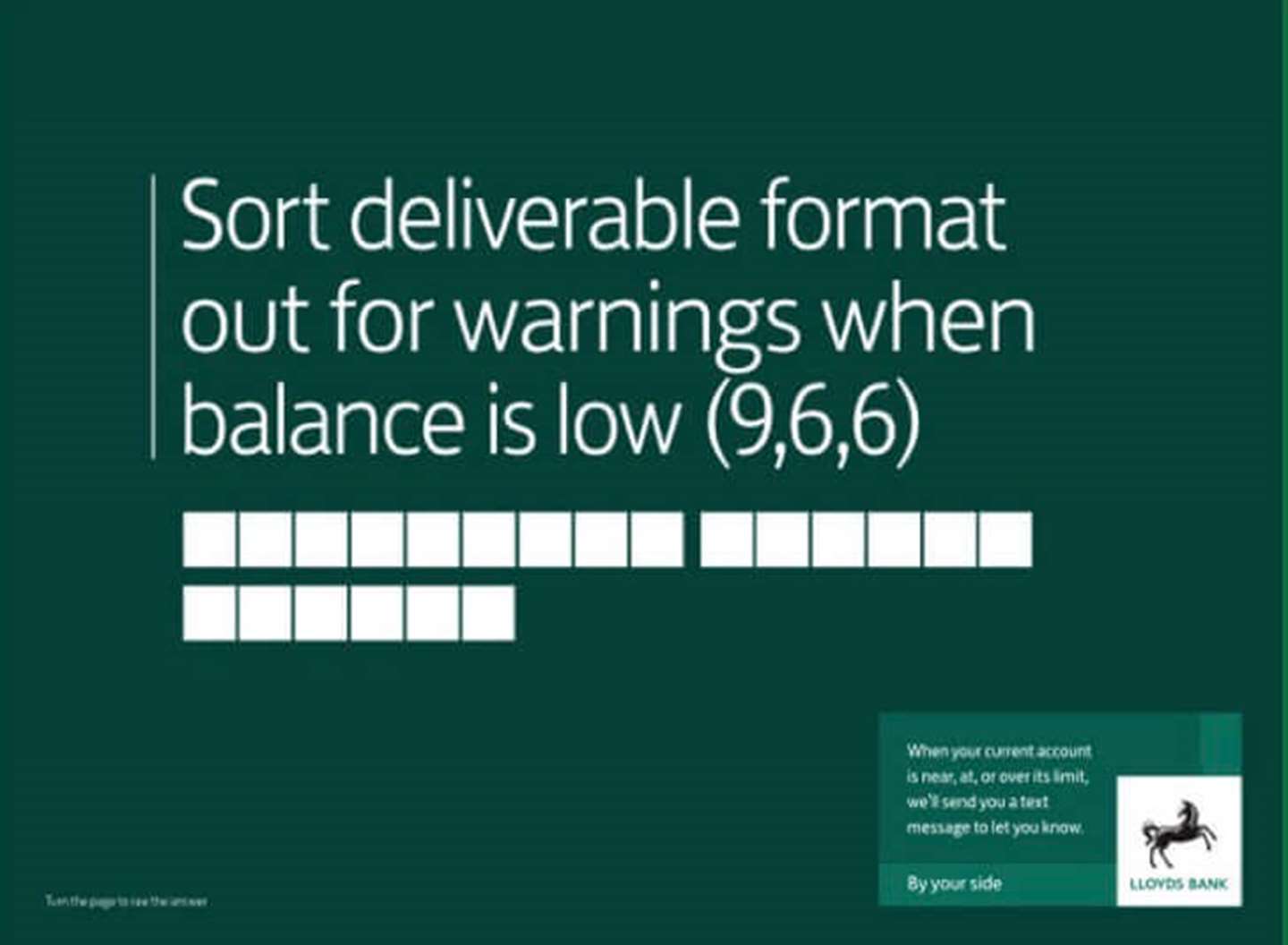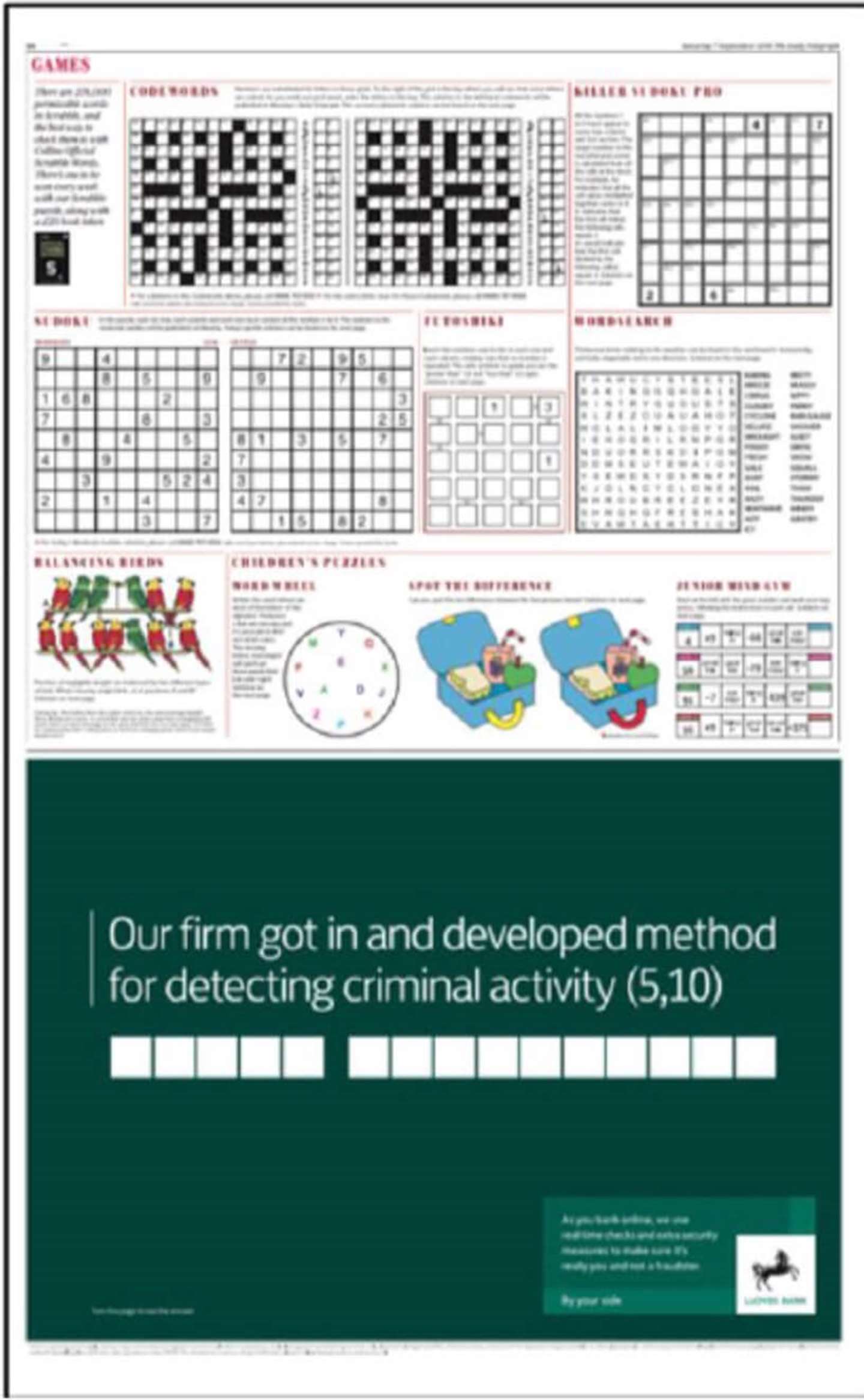Turning to traditional methods
Firstly, they identified the perfect contextual environment where they could target those same customers in a new campaign – in the puzzle section of The Telegraph as it turned out. Secondly, they had to work out how they could best communicate with them within that space. Why The Telegraph? Because it’s the preferred newspaper among this financially sophisticated demographic. While studies revealed that this audience is ten times more likely to do newspaper crosswords and the puzzle pages receive the highest dwell time of any other page in the paper.
Trust in print also played a major factor in deciding on the best campaign channel. In 2017, NewsWorks conducted research that investigated the concept of trust and how it applies to news media. It found that older readers trust print, and 76 per cent of readers trust the quality newspaper they read.
Subsequently, their agency MediaCom partnered The Telegraph in a Lloyds Banking Group campaign called ‘Crossword Clues’. And ironically, in a campaign designed to get customers online, they turned to a most traditional method of piquing the puzzlers’ interest – through a series of 10 15 x 15 square print crossword-style ads positioned in a half-page space reserved for advertising that revealed the features of the app as answers. The ads ran on weekday and weekend pages, while the answers over the page ran alongside instructions on where to learn more about the app and its features.
It’s all too easy to infantilise older, technophobe customers, but rather than talking down to them, they respectfully appealed to their sharp intellect for solving cryptic clues. The idea being, that if they’re smart enough to decipher these tricky brainteasers, they’re smart enough to use a banking app.



